Jencunas: Comparing & Contrasting Donald Trump to Ronald Reagan
Wednesday, May 04, 2016
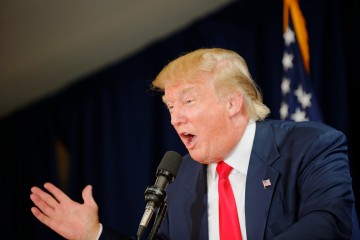
It’s a comforting thought, but even a cursory examination of Reagan's career shows him to be vastly different from the current Republican frontrunner.
Comparing Trump vs. Reagan
Like Trump, pundits thought Reagan would never be elected President. James Reston, the two-time Pulitzer Prize winning columnist, summed up conventional wisdom when he wrote, “The only logical explanation of this year’s astonishing Republican presidential campaign is that it’s being run out of the Democratic National Committee.” This perceived unelectability is where Trump and Reagan’s similarities begin and end.
At the core of Trump’s campaign is the promise of simple solutions to complex problems. Though Reagan did say “Well, perhaps there is a simple answer—not an easy answer—but simple,” his definition of simple was not like Trump’s. Simplicity didn’t mean empty slogans. Instead, it was a contrast to leaders like Jimmy Carter, who argued that the problems of the late 1970s were too complex for government to solve, so Americans needed to accept a lower standard of living.
In Reagan’s first speech of the 1980 campaign he announced more specific plans than Trump has offered in the whole election. To deal with the energy crisis, he promised to repeal Carter’s regulations, build more nuclear power plants, and encourage more domestic oil exploration. On taxes, Reagan went so far as to endorse a specific piece of legislation, the Kemp-Roth bill.
The speech’s foreign policy section was vaguer, but compared to Trump’s foreign policy speech, it was a Brookings Institution white paper. Reagan promised to continue spending record sums on the military, implicitly criticized détente for allowing the Soviets to gain nuclear supremacy, and vowed to meet with Canada and Mexico to promote more integrated North American economic relationships. All of these stances are the opposite of what Trump has promised.
On foreign policy, Reagan and Trump could not be more different. At the core of Reagan’s foreign policy was engagement with the outside world, for the purpose of defeating the Soviet Union. In his 1980 campaign he criticized how “America had simply ceased to be a leader in the world.” Yes, Reagan sometimes ran afoul of our traditional allies but his overall record was of working with Europe and NATO on issues like arms control negotiations. Were he alive today, he would view Trump’s plan to monetize American security guarantees as a terrifying abdication of leadership.
Furthermore, there was a moral dimension to Reagan’s foreign policy that is opposite of Trump’s approach. Reagan’s fundamental change from Nixon, Ford, and Carter was viewing the Soviet Union as an evil to be defeated rather than a powerful rival to be contained. This moralistic approach led Reagan to call the Soviets an evil empire that should be consigned to the ash heap of history. When he spoke about communism, he didn't just criticize its inefficiency, like Nixon did a generation earlier in the Kitchen Debate against Khrushchev, but condemned it as an affront to universal human rights. In contrast, Trump fawns over Putin’s strength and praising China’s suppression of the Tiananmen Square protesters.
Insofar as there is one, the Trump Doctrine is to charge allies for security, praise any brutality as strength, and view deal making as the ultimate goal of an international leader. If it weren’t real, it would sound like a neocon parody of realist arguments. Realism calls for making necessary alliances with dictators in spite of their brutality. Trump's perverted realism views cruelty as an asset in a potential ally. Not only is it nonsensical, it couldn’t be further from how Reagan viewed America’s role in the world.
Contrasting Trump and Reagan
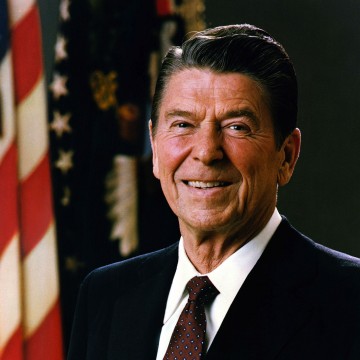
Trump’s signature issue of immigration is where he most closely hews to the conservative, hardline position. Unsurprisingly, it’s the area where Reagan broke with right-wingers the most. Reagan openly criticized the same kind of border wall that Trump’s supporters fetishize, saying in a 1980 debate, “Rather than making them, of talking about putting up a fence, why don't we work out some recognition of our mutual problems.” As President, he supported amnesty for illegal immigrants over the bitter objections of conservatives like Senator Jesse Helms.
These policy differences come from a fundamental philosophical difference. Reagan was an optimist who thought America had a unique moral place in the world. This was what he meant when he spoke of our nation being a “shining city on a hill.” This moral optimism caused Reagan to believe that anything was possible both in America and for America, so long as we stuck true to our principles. This made him invulnerable to predictions of American decline, no matter if it was caused by the Soviets, seemingly unstoppable stagflation, or uncontrollable waves of immigration.
Trump has a far different worldview, similar to classic nationalist beliefs. Everything is zero sum, with clear divisions between Americans and everyone else. Whether it’s international trade, nuclear proliferation, or immigration, America is losing because China, Iran, or Mexico are making better deals than our stupid leaders. To Trump, American decline has already begun and will only be solved by walling off our borders and metaphorically walling off our industry. We need to stop leading the world because leadership will only cause other nations to take advantage of the United States, whether it’s with NATO or the TPP.
Politicians who start from such different worldviews will never be similar. Comparing Trump and Reagan might be a security blanket for Republicans trying to find a way to back a candidate whose success they once considered unthinkable, but it’s completely inaccurate. Trump’s new supporters need to defend his ideas on their own merits, not by invoking a connection to Ronald Reagan that has no basis in reality.

Related Slideshow: Presidential Candidate’s Social Media - 2016
Related Articles
- Jencunas: Trump, Not Sanders, is the Political Revolution
- Jencunas: Trump - What the Clown Show Means for the Election
- Jencunas: Hoping Joe Biden Doesn’t Run for President

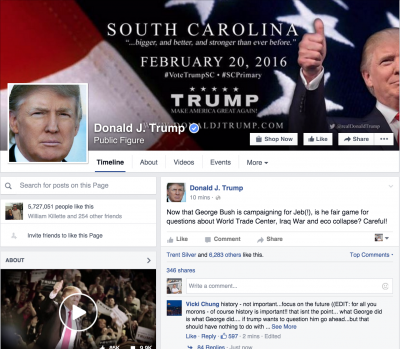
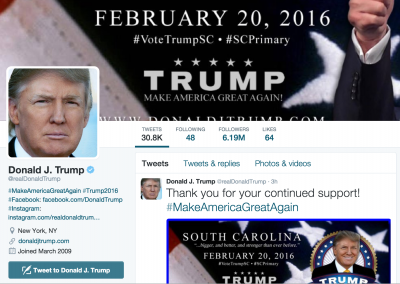
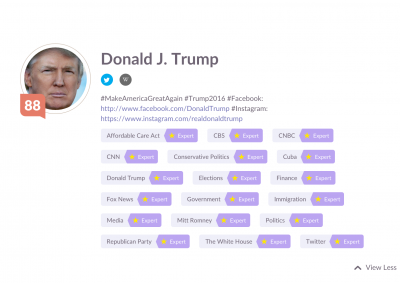
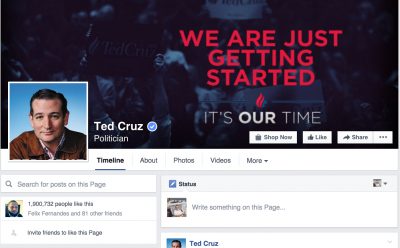
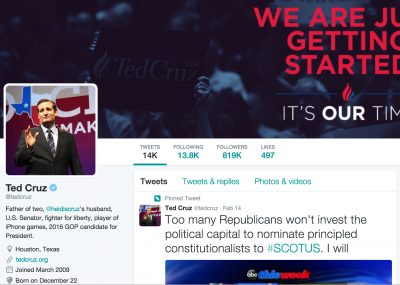
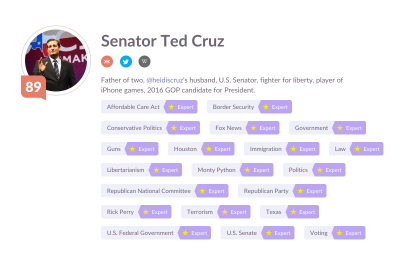
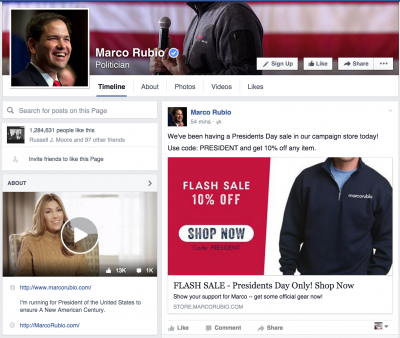
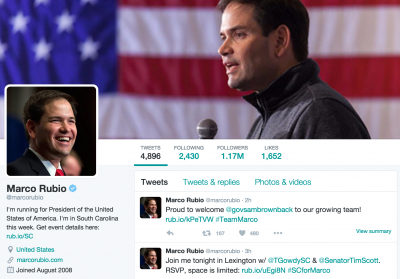
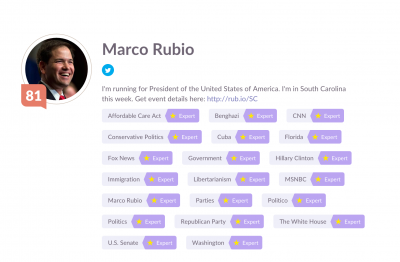
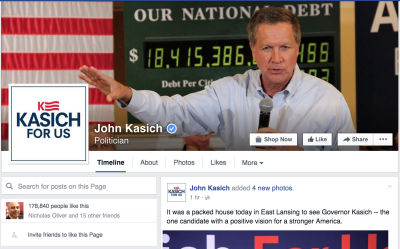
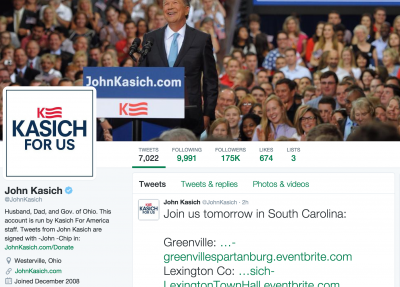
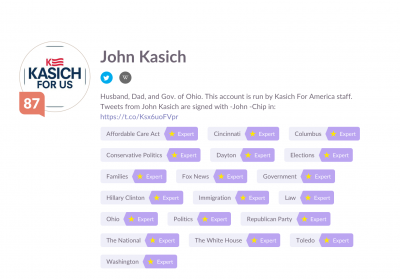
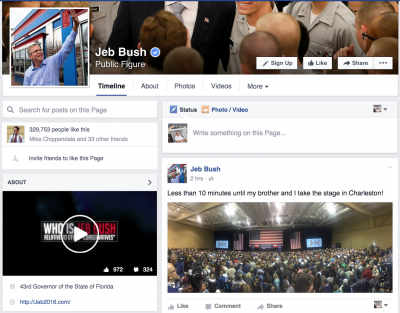
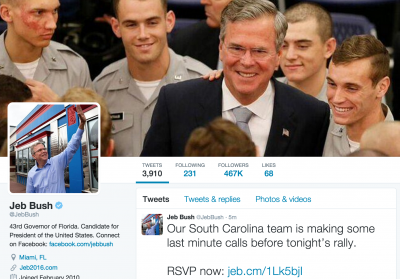

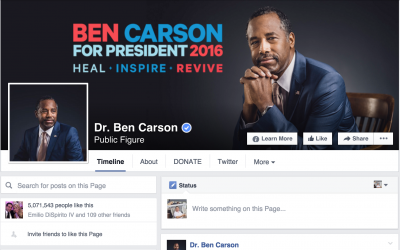
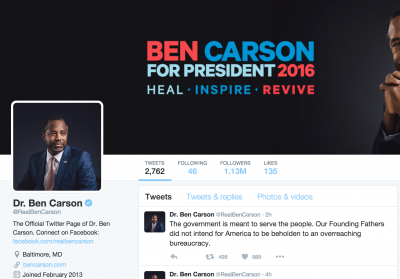
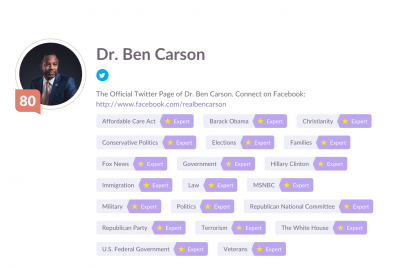
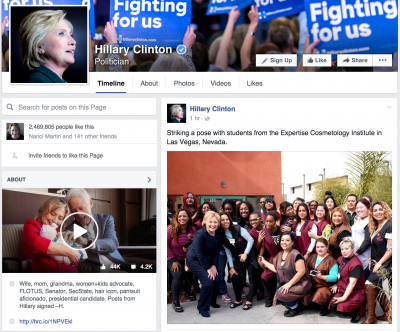

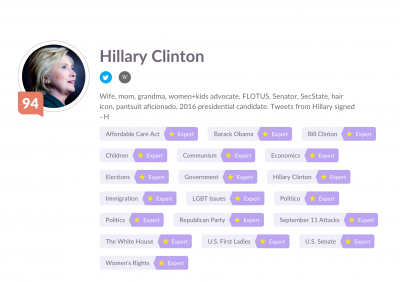

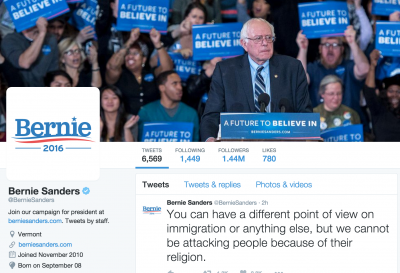
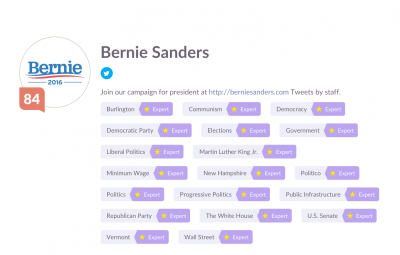



























Follow us on Pinterest Google + Facebook Twitter See It Read It